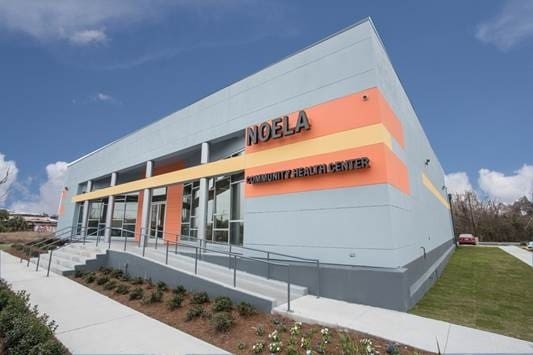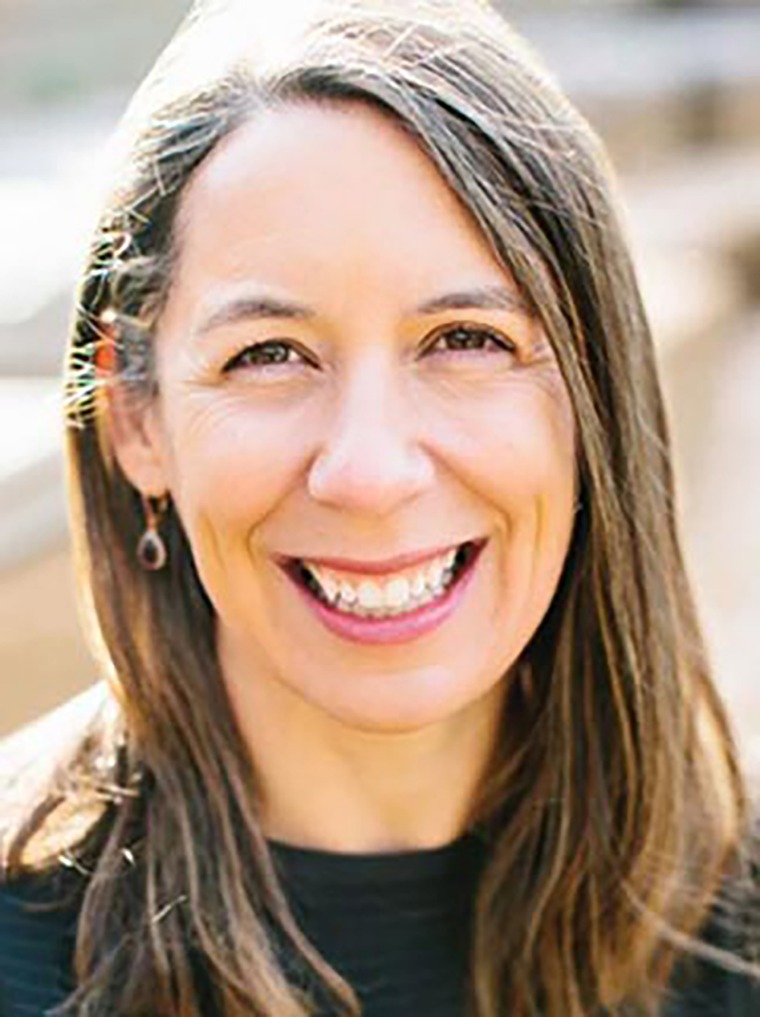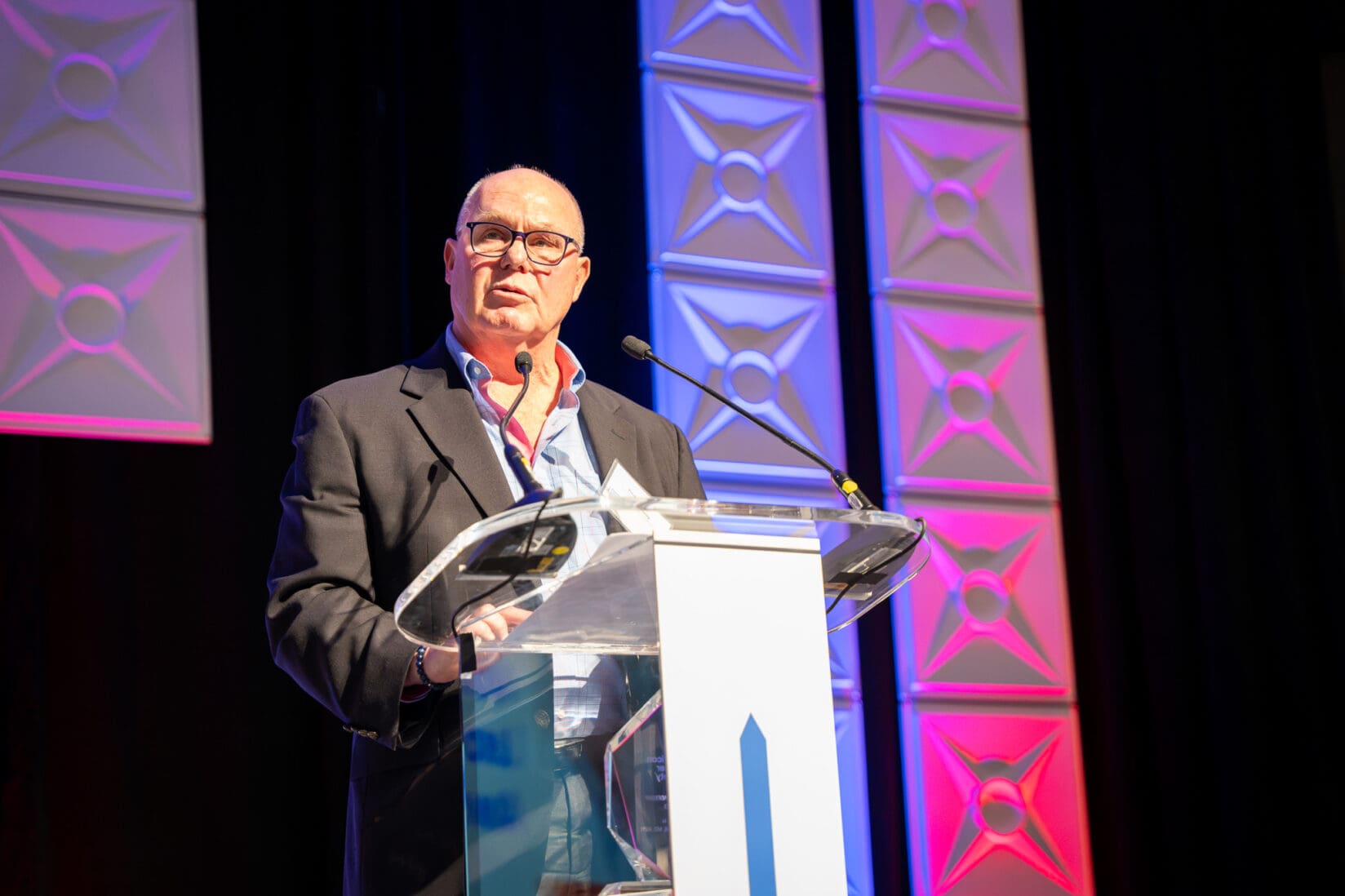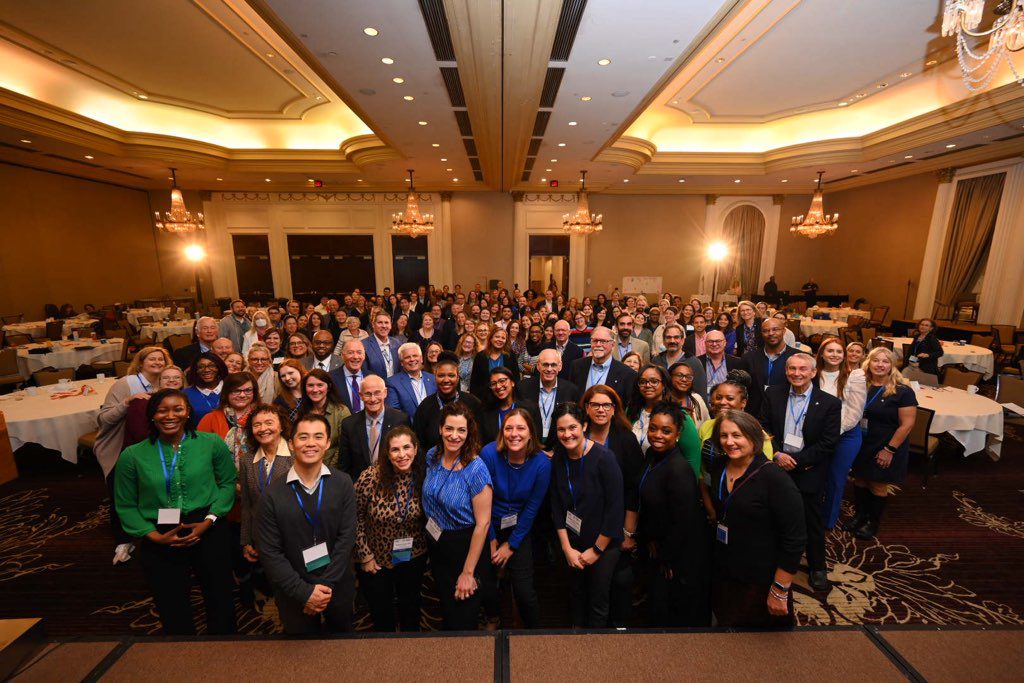Interview with NOELA Community Health Center—Grand Prize Recipient of the 2019 80% by 2018 National Achievement Award

May 23, 2019 – Author: Keith Winfrey, MD, MPH
 New Orleans East Louisiana Community Health Clinic is this year’s Grand Prize recipient of the 80% by 2018 National Achievement Awards, a program designed to recognize individuals and organizations who are dedicating their time, talent and expertise to advancing needed initiatives that support the shared goal to achieve colorectal cancer screening rates of 80% and higher.
New Orleans East Louisiana Community Health Clinic is this year’s Grand Prize recipient of the 80% by 2018 National Achievement Awards, a program designed to recognize individuals and organizations who are dedicating their time, talent and expertise to advancing needed initiatives that support the shared goal to achieve colorectal cancer screening rates of 80% and higher.
Dr. Keith Winfrey is the Chief Medical Officer for the New Orleans East Louisiana Community Health Center (NOELA CHC). He is an Assistant Professor of Medicine at the Tulane University School of Medicine, having completed his residency in Internal Medicine and a fellowship in Preventive Medicine at the Tulane University School of Medicine. He also holds a Masters’ Degree in Health System Management from the Tulane University School of Public Health and Tropical Medicine.
Dr. Winfrey has been with NOELA CHC since 2009 and has served as the Chief Medical Officer since 2011. He has guided NOELA CHC through the practice transformation process to become a Level III “Patient-Centered Medical Home” and to improve the health center’s efficiency and effectiveness in chronic disease management and disease prevention.
Dr. Winfrey serves on the steering committee for the Louisiana Colorectal Roundtable, the clinical committee for the Taking Aim at Cancer Louisiana initiative, and is the current Clinical Branch Chairman for the Louisiana Primary Care Association.
In May 2019, Dr. Winfrey received AstraZeneca’s Cancer Community (C2) Catalyst for Change Award. This 4-minute video describes his work and offers a glimpse into the community served by NOELA CHC.
Hi, Dr. Winfrey! We’re excited to feature your work on the 80% Blog. Can you tell us a little about yourself and how you ended up working on colorectal cancer screening?
It’s an honor to share our story with you. I’ve had an interest in individual and population-based medicine since completing a dual-residency in Internal & Preventive Medicine at Tulane School of Medicine 17 years ago. After returning to New Orleans following Hurricane Katrina, I joined the medical staff at Tulane School of Medicine and was later assigned to the Tulane Community Health Center – New Orleans East. [The name was later changed to New Orleans East Louisiana CHC in 2012]. In 2013, while we were preparing our 2012 UDS report (the first year that the Health Resources and Services Administration included colorectal cancer screening as a Uniform Data System measure for community health center grantees), the initial analysis revealed that our health center had a 3% colorectal cancer screening rate. That’s when colorectal cancer screening became a priority for us. In 2014, our health center began working with the American Cancer Society and later learned about the NCCRT‘s 80% by 2018 initiative. We signed the pledge and adjusted our goal to coincide with the NCCRT’s mission.
Tell us a little bit about NOELA Community Health Center.
NOELA CHC was initially founded by Tulane University School of Medicine in August 2008. We are located in a diverse, low-income, community which consists predominately of Vietnamese, African-American and Latino residents and we average over 14,000 encounters per year. We care for close to 4,000 unique patients per year, 78% of whom fall below 200% of the Federal Poverty Level (FPL) and 60% have incomes at or below the FPL. Our health center strives to offer comprehensive primary and preventive health services for the entire family. In particular, we provide adult and pediatric primary, preventive, and behavioral health care services, OB/Gyn services, and chronic disease management for conditions such as diabetes, hypertension, obesity, and hepatitis B and C. We employ the patient-centered medical home model, and our preventive care services include health education and initiatives to improve immunization and cancer screening rates.[vc_widget_sidebar sidebar_id=”sidebar-1″]What activities and systems changes did you implement, and how did you choose them?
Our first priority for improving colorectal cancer screening rates was to adopt a certified electronic health record that we would use to measure screening rates and one with the capability of producing disease registries. We then developed a registry of patients that were either due for colorectal cancer screening or up to date with screening and identified the method in which screening was satisfied. Next, we stressed to our providers the importance of their recommendation in motivating patients to take action. From there, we hired several essential staff members, including a quality improvement director and several patient navigators. Once the foundation was in place, we then began adding various evidenced-based interventions (EBIs) until we found the ones that worked best for us. The EBIs or strategies that were most effective were promoting stool-based testing using a global opportunistic-based approach and providing regular patient and provider reminders. The patient reminders were provided by mailings and over the phone and the provider reminders occurred in the form of pre-visit planning reports. Practice assessment and feedback was provided monthly, and we developed new data analysis and reporting as we went along.
I understand you began working with two area hospitals to establish an Open Access Endoscopy (OAE) agreement. How did this work?
Yes, along with members of the Louisiana Colorectal Cancer Roundtable and the Louisiana Primary Care Association, we identified the endoscopy providers most commonly utilized by our local Federally Qualified Health Centers (FQHCs). We then proceeded to meet with them to discuss the referral process and identify opportunities for improving efficiency. Through this process, we were able to understand the most important barriers the endoscopist encountered when screening our patients. These barriers included ensuring patients achieved an adequate bowel prep, minimizing “no-shows”, identifying patients’ co-morbidities and anesthesia risk, and ensuring the patient had reliable transportation. As a result of several meetings, we were able to reach an OAE agreement with one provider that allowed our patients to forgo the pre-procedure encounter with the endoscopist and be placed directly on the endoscopy schedule as long as certain key criteria were met. This greatly improved efficiency for our low-risk patients that were willing to undergo screening colonoscopy.
What success have you seen? How did you measure that success?
Over the course of six years, we’ve seen our overall colorectal cancer screening rate increase from 3% in 2012 to 80% by 2018. This has been in large part a result of annual stool-based testing. However, we’ve also seen a significant increase in patients completing screening colonoscopy. What’s been even more encouraging is to see patients that were initially only interested in stool-based testing, after two or three years, develop the courage to complete a screening colonoscopy.
What tips would you offer to others that are working to increase colorectal cancer screening in underserved communities?
When working with underserved communities, patience and repetition is key. Be prepared to repeat your message frequently and in various forms before the patient actually follows through with the test. Providers must initiate the discussion around risk factors, family history, and acceptable screening modalities and ancillary staff should support the provider’s recommendations. Next, consider using motivational interviewing techniques to meet patients where they are with regards to their understanding and willingness to undergo screening and then focus on offering the screening test that they are most likely to complete. Finally, it’s important to ensure that your organization has the proper foundation in place to support high-quality screening (i.e. “buy-in” from administration, a certified electronic health record, the right complementary staff, and a reliable tracking mechanism).
Were there tools, trainings or resources that you found helpful?
Yes. The article “Strategies for Expanding Colorectal Cancer Screening at Community Health Centers” by Sarfaty, Doroshenk, et al was the initial resource that we used to develop our plan. Later the “How to Increase Colorectal Cancer Screening Rates in Practice: A Primary Care Clinician’s Evidence-Based Toolbox and Guide, 2008” and the “80% by 2018 Communications Guidebook: Recommended Messaging to Reach the Unscreened” were resources that were used to identify various evidenced-based interventions that we later employed.
Do you have any final tips for our readers that are working to achieve 80% in Every Community?
I hope our story inspires other organizations to believe that improvements in colorectal cancer screening are possible. Improving screening rates can seem deceptively simple in the beginning but can become frustrating and discouraging when change is not quickly recognized. Take the time to prepare your team and organization, set realistic and achievable goals, and celebrate successes. Finally, if something is not working for your population, change it! Each community is different, so it’s important for each institution to understand which messages their patient population will be most likely to respond to and focus on it.
Thank you for sharing your story with us! We look forward to hearing more about your work and NOELA Community Health Clinic’s progress in the future. [vc_tweetmeme][vc_facebook]
We Highlight Successes, Leaders, Best Practices, And Tools That Are Making An Impact In The Nationwide Movement To Reach 80% Screened For Colorectal Cancer.
Do you have a suggestion for a future blog topic? We welcome you to share your suggestions by emailing [email protected].
Blog Policy
Opinions expressed in these blog posts are that of the author and do not represent policies of the National Colorectal Cancer Roundtable or the author’s institution.
Our staff moderate all comments on the 80% Blog. While we do not censor based on point of view, we will delete or edit comments that are offensive or off topic. Click here to view full version.
© 2024 American Cancer Society National Colorectal Cancer Roundtable. All rights reserved.


